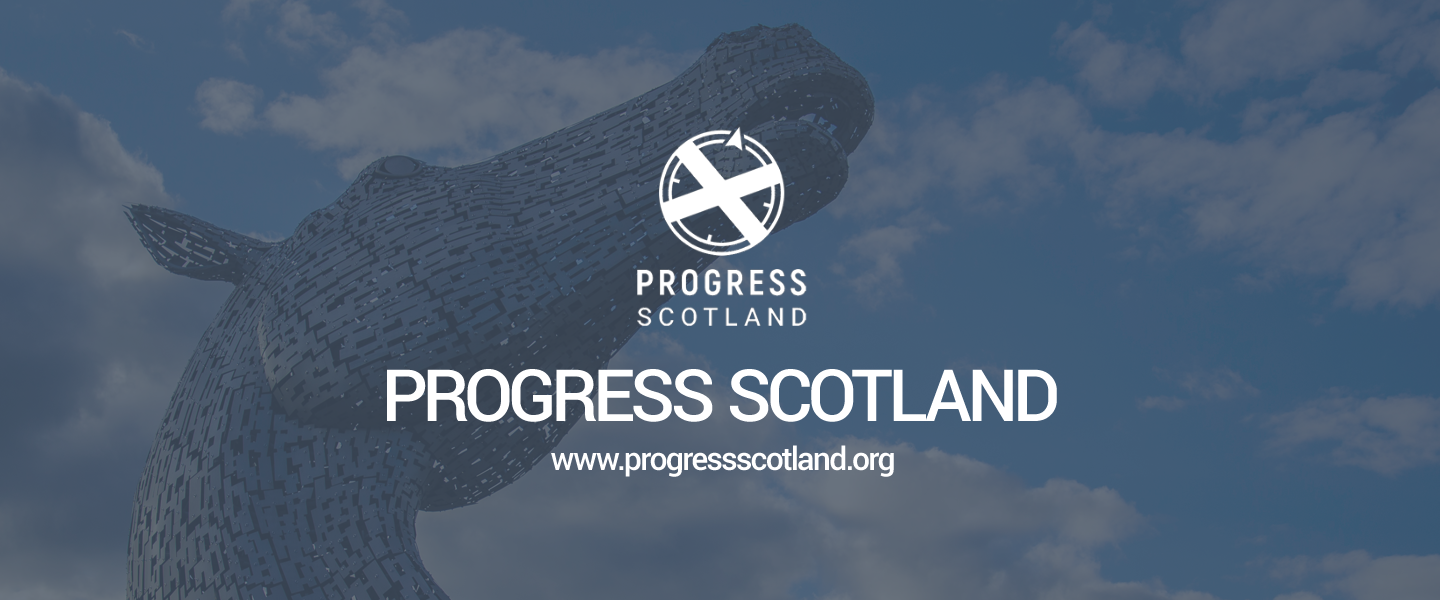
03 - 02 - 2019 / Update
LAUNCH OF ‘PROGRESS SCOTLAND’
A new polling and research organisation ‘Progress Scotland’ has been launched with the aim of better understanding Scottish public opinion in the wake of the Scottish independence referendum and the vote against Brexit in Scotland.
Progress Scotland is being headed by the former SNP Deputy Leader and Westminster SNP Group Leader Angus Robertson and its polling and research is being conducted by Mark Diffley, the lead pollster for the UK Government in the run-up to the 2014 independence referendum.
Opinion polling, focus group and other research commissioned by Progress Scotland will be funded through public subscriptions and donations. Polling analysis and detail will be released to subscribers and via the website: www.progressscotland.org
Speaking ahead of the launch Angus Robertson said:
“Progress Scotland aims to help prepare the case for Scotland to progress towards independence, keeping pace with the views of the people who make their lives here. With the help and support of subscribers we will research the opinion of people in Scotland and test their appetite to emulate the most successful small countries in the world. We will provide insight and analysis on what is needed to persuade people on the case for Scotland to make progress.
Research and polling advisor Mark Diffley outlined why he was excited to be part of the project:
“Scotland has been my home for nearly 20 years and I have witnessed how the country has changed and continues to change. We are at a time when it has never been so important to listen to the people of Scotland and understand what the public is thinking”.
"I am going to conduct the polls and research for ‘Progress Scotland’ and I am very excited to see what we will find. With so much going on with Brexit and the debate about Scotland’s future; now is the right time to ask people about their opinions, how they are changing and why. It makes sense to try and understand people’s hopes and concerns especially at this time of change”.
Amongst a series of interviews conducted to coincide with the launch of Project Scotland and available on its website, the former UK judge on the European Court of Justice Sir David Edward explained how his views have been changing:
"In 2014, I was a committed ‘No’ voter - head and heart. I’m now not so sure. I’m ambivalent.
“It seems to me that we may have to choose on the one hand between the undoubted uncertainties of independence and on the other exit from the EU, and being ruled by people in London who don’t understand or believe in the constitutional implications of the devolution settlement. And if that’s the choice, I could be persuaded to vote for independence”.
“To be persuaded to vote for independence, I would need to see much more evidence that Scotland and its institutions are capable of bearing the intellectual, financial and administrative burdens that independence would involve”.
The former Daily Record editor Murray Foote said:
“As the former newspaper editor responsible for ‘The Vow’, you may be surprised to hear I’ve always been sympathetic to the concept of Scottish independence. But, on balance, I never considered it the universal cure for Scotland’s social ills. However, events shape and change opinion.
“With mounting anger I've watched the Westminster Government choose to inflict vindictive policies across Britain. And, despite overwhelming evidence, they continue to deny the damage their policies cause.
“Now we teeter on the brink of Brexit, an act of self-harm for which future generations will pay a heavy price. Again, Brexit is a choice. But it’s not Scotland’s choice. Throughout this unfolding calamity, the Westminster Government has treated Scotland’s democratic preferences with shameful contempt.
“As a dad, I dread the prospect of shackling my daughters to an isolated Britain ruled indefinitely by this callous, self-serving elite. For all our children, this cannot be as good as it gets. It’s our duty to secure for them a better future. I believe that’s best achieved through independence.
Edinburgh-based businesswoman, who is originally from England Caroline Castle said:
“My background is in business, I ran a training and marketing business for 20 years, but I now teach English to EU and other foreign national citizens in Edinburgh. I voted ‘No’ in 2014 because I didn’t think it was in Scotland’s best interests to break away from the UK and lose its membership of the EU. I didn’t anticipate what was about to happen 2 years’ later.
“Brexit is already a catastrophe , creating division, damaging our reputation and economy. If the UK Gov continues on its present course this will only get worse. So many people in England are in despair because they don’t have any choice as both Labour and Tories are committed to Brexit.
“Scotland does have a choice and unless the UK Government compromises or there is a People’s Vote that reverses Brexit, I would now vote for Independence. We know that referendums cause division, so I think the timing of a referendum on Independence should be when there is a clear majority of voters wanting it.
The solicitor advocate Mike Dailly who was previously a Labour Party activist and “Better Together supporter said:
“For me it has been a gradual realisation over time that Scotland’s future will only be achieved through independence.
“In 2014 in Scotland we said that if you voted ‘No' that would guarantee our right to remain in the EU. Now that has proven to be false. We had 62% of people in Scotland wanting to stay in the EU. I want to stay in the EU. I want my children to be European citizens and that is being taken away from us.
“We are being dragged out of Europe, with possibly a hard Brexit which will cause untold misery and detriment to people and businesses in Scotland. So for me there are a number of reasons why I’ve ultimately come to the conclusion that Scotland’s future and ambition will only be achieved if we have self-determination, which is why I have changed my position from ‘No’ to ‘Yes’.
The Edinburgh Councillor Ashley Graczyk, who was first elected as a Conservative said:
“Disability rights really matter to me as someone who is profoundly deaf and I have had growing concerns about how the vulnerable are treated by Westminster. In 2014 I voted ‘No’ because I thought the status quo was safe. But things have changed massively and people have new perspectives.
“Between the treatment of the vulnerable people with disabilities and the treatment of Scotland which didn’t vote for Brexit, I decided to declare my support for Scottish independence. Whenever there’s the next referendum on Scotland’s independence I will definitely be voting ‘Yes’.
Politics student and young Liberal Democrat member Chris Wilson from Lanarkshire said:
“As a proud Liberal Democrat, Scot and European, I believe that we must respect the EU referendum result in Scotland. The European Union empowers young people like myself with the Erasmus Scheme, while advocating civil liberties and basic human rights that we all deserve.
“Lib Dems like me will have to make a choice sooner or later about which Union we prefer. I choose for Scotland to set its own path as a progressive, socially democratic society within the European Union, not as part of an increasingly right wing intolerant United Kingdom.
“While I was a ‘No’ supporter in 2014 I have changed my mind since, and I would vote ‘Yes’ today for Scottish independence in Europe, for the sake of my generation and the ones that will follow.
Youth activist Erin Mwembo from East Lothian has just left school said:
“At the time of the independence referendum I was too young to vote, but having looked at the issues I would probably have voted ‘No’. Since then however, my views have changed and like most young people in Scotland I now support independence.
“Being responsible for our own future and making better decisions closer to home is definitely the best future for Scotland and everyone who lives here. Looking at the Brexit mess at Westminster I’m convinced we can do better, and protect our place in Europe. I know that many people, like me, have been changing their views on independence. And I think many more will do the same.

